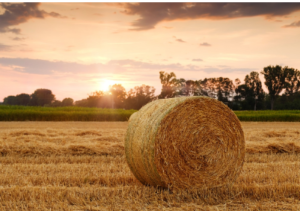Baler Twine: Choosing High Tensile Strength Baler Twine
Baler twine is a critical component in making a quality hay bale. It is a high-quality sisal or poly twine used to thread through the baler’s system of guides, loops, tension plates and wheels.
 Baler twine is available in a variety of colours and weights. It’s also available on spools that are formatted specifically for use in balers. For more information about high tensile strength baler twine, click here.
Baler twine is available in a variety of colours and weights. It’s also available on spools that are formatted specifically for use in balers. For more information about high tensile strength baler twine, click here.
High tensile strength
Choosing the proper twine can significantly affect how well you bale your hay. Selecting a product with high tensile strength and strong knots is essential. It should also be treated to resist rodents and have a UV inhibitor to prevent premature degradation.
This hay twine is made from polypropylene and offers high tensile strength, knot-grip performance, and resistance to UV degradation. It’s easy to handle and is ideal for tying round or small square hay bales. It’s also treated to resist rot and contains no tastes, smells, or oils that may attract rodents.
Professional contractors use This baler twine to ensure the trouble-free operation of big square balers, which is guaranteed to hold a tight knot. It is also resistant to most chemicals, degreasers, and electrolytes.
Stronger knots
It has a high knot strength and is designed for the latest big baler machines. It is also suitable for all straw, hay and silage crops. It is available in a compact 1500 m spool and a more giant 2500 m spool. It is made for harsh Australian conditions and has UV protection adapted to the region where it will be used. For more information about high tensile strength baler twine, click here.
The twine is produced by melting a polypropylene sheet. It is then cooled and stretched under tension to increase strength, elongation and resistance. It is then tempered and stabilised using rollers. It is then coiled and packaged for commercialisation. It can be dyed for colour identification and UV indices adapted to the area of use. It can also be customised according to customer requirements.
Denser bales
In addition to lowering baler maintenance costs, denser bales allow for more forage in the same package. It can save on shipping and storage costs. Additionally, it can reduce the need for net wrap and plastic, saving money on materials.
Longer bales
When choosing hay baling twine, consider the tensile strength and knot strength. The tensile strength is the force a single, unknotted length of twine can withstand. It also reflects the resiliency of the twine and its ability to hold up to weather exposure over time.
Another consideration is the colour of the twine, which can help identify bales. Some twine is even dyed to match the type of hay being used. It helps to reduce bale loss during the wrapping process.
Other options include poly twine, made from recycled post-industrial material and won’t biodegrade. It is available in various colours and different spool sizes or rolls. It is also resistant to organic solvents and degreasers, making it an excellent baling choice. For more information about high tensile strength baler twine, click here.
Easier to handle
Using the proper twine will make all the difference in the quality of your bales. Look for a spool that fits easily in the storage box on your baling machine and won’t be damaged when loaded. Spools that are too tall may interfere with accurate winding in the box, which can cause problems when used in the field.
Also, be sure the spool isn’t too short. It can create a hazard for animals that could chew or entangle on the loose ends of the twine. If this happens, the animal could be seriously injured. The multi-strand construction of high-tensile strength twine helps prevent this. This type of twine is also made from recycled plastic polymers, making it safe, practical and environmentally friendly. It is also rot-resistant and resists mildew.